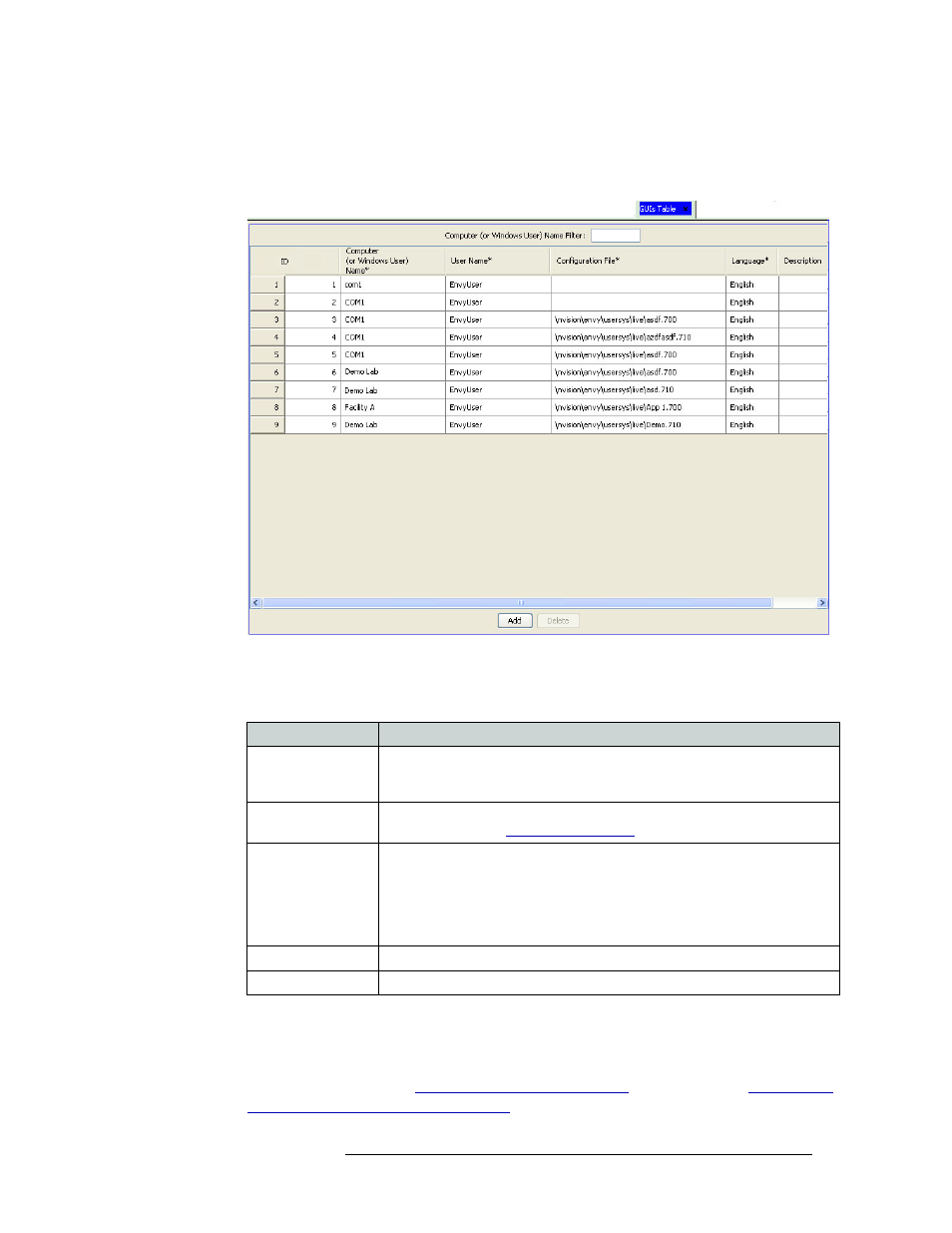5 click save to save your changes, N in figure 4-5, Configurations – Grass Valley NV9000-SE v.3.0 User Manual
Page 43

NV9000-SE Utilities • User’s Guide
23
4. Configurations
Working With Configuration Files
To narrow the list of EC9700/EC9710 panels that display, enter the first characters of a control
panel name in the ‘Computer (or Windows User) Name Filter’ field. The list is automatically
reduced to display only control panels matching that character string.
Figure 4-5. GUIs Table
3 Click
Add
. A blank row appears at the bottom of the list of EC9700/EC9710 panels.
4 In the blank row, click on a cell in a column to activate it and enter information, as follows:
5 Click
Save
to save your changes.
6 (Optional) Add further details using the ‘EC9700/9710’ page accessed through the ‘Configura-
tion’ pane. To add details to the control panel, locate the control panel and perform steps 5
through 14 as described in
on page 385. (See
Viewing Existing EC9700/EC9710 Panels
Section
Description
Computer (or
Windows User)
Name
Enter the name of the computer of the user’s name on the network where the
control panel application resides.
User Name
From the drop-down list, select a user name. User names are managed through
the ‘User’ table. (See
Configuration
From the drop-down list, select a configuration file. A control panel
configuration file is created when a control panel is added to the NV9000-SE
system. By default, NV9000-SE creates a default pathname for the configuration
file by concatenating “
\nvision\envy\bin\usersys\live\
” and the
configuration file name. The pathname is expressed relative to the hard disk of
any NV9000 server.
Language
From the drop-down list, select a language. Currently, only English is supported.
Description
Enter an optional description of the control panel.
